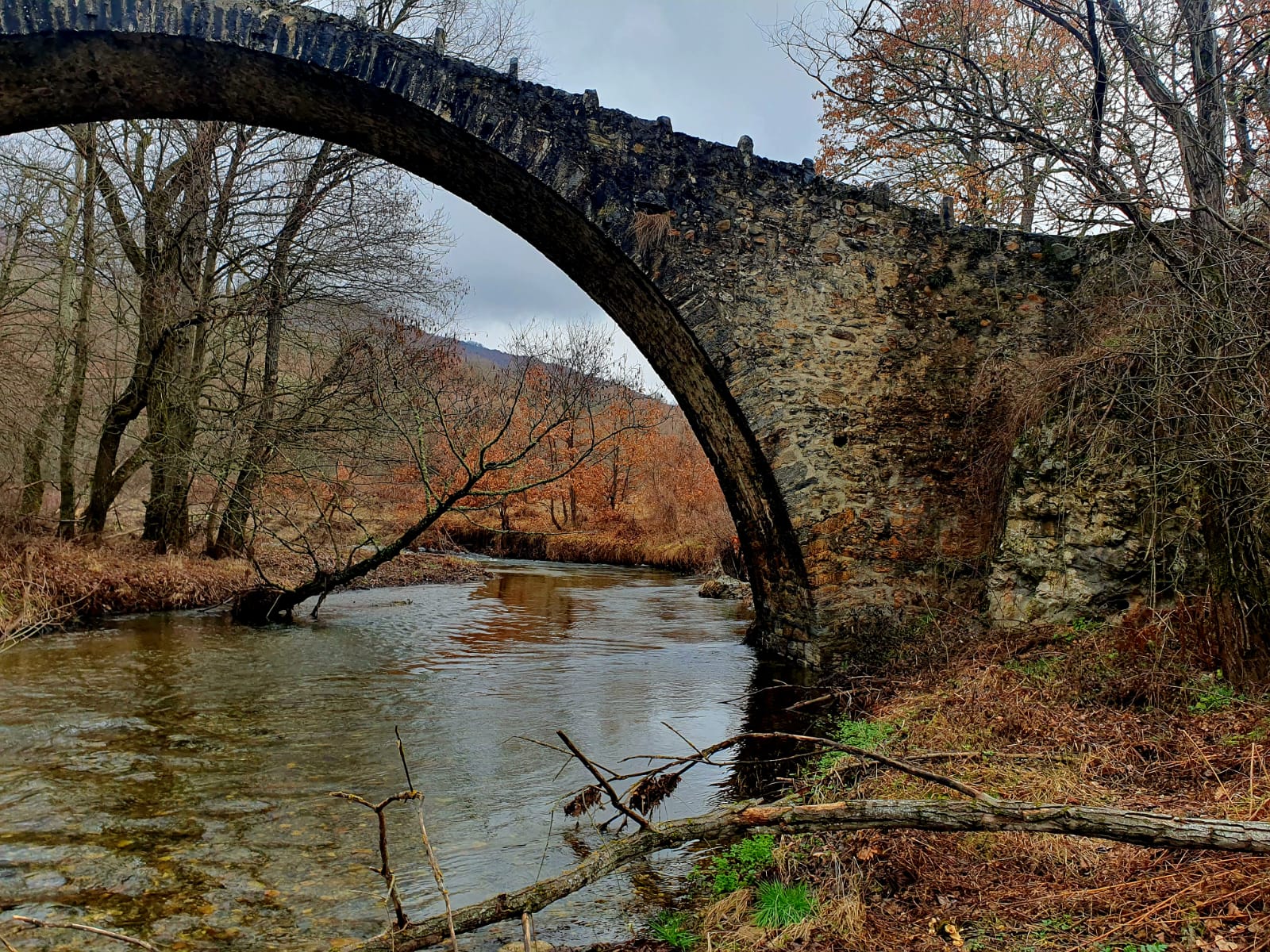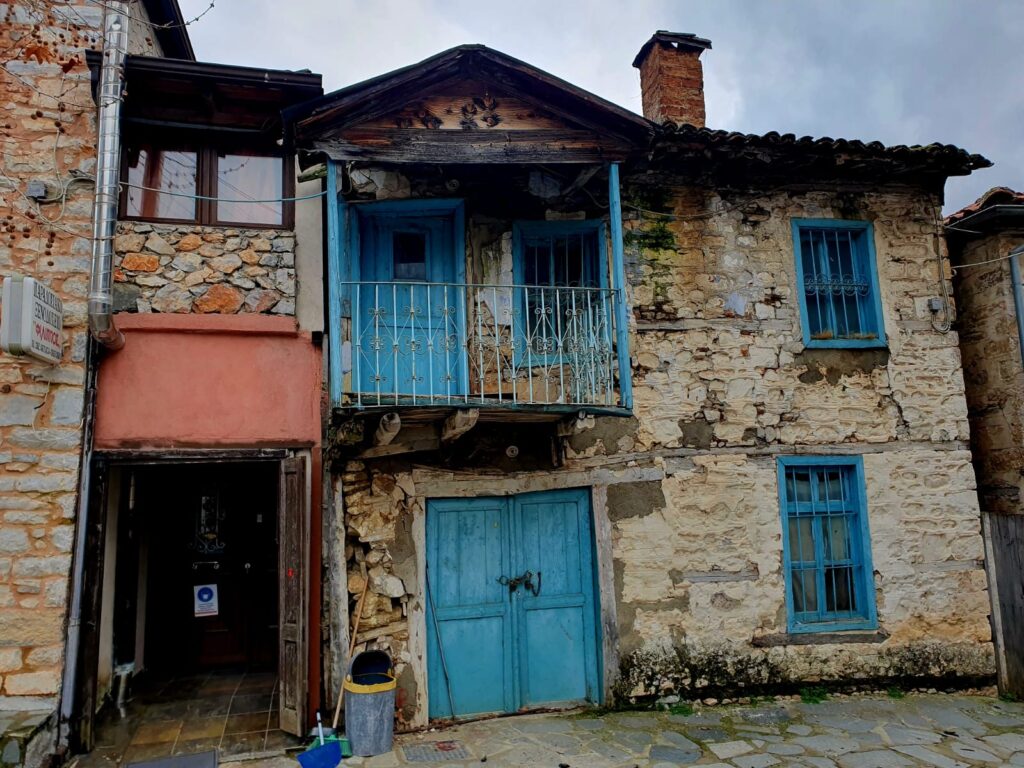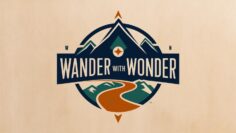On the road: What happens when you stop the car for a moment ?
Trip to Greece and South Albania – Chapter 1
After stopping the car near a small bay along the road and heading down – despite the cold and the drizzle falling from the sky – I was surprised to discover a flowing river surrounded by a forest full of trees, all of them completely bare. The gloomy sky presented only dark shades of gray, and the only sounds were the flowing water and the gentle dripping of the rain. In front of me stood an Ottoman bridge connecting the two sides of the valley. There wasn’t a soul around in this beautiful spot, and down there I realized how much I love traveling when winter wraps everything around. In a season when the trees are completely naked, silence reigns, the cold dictates our desires, our mood, and how we spend our free time – I truly enjoy traveling. During this time, nature feels cleaner, there are fewer people everywhere – if any – and after a bit of effort, whether walking or doing something else, the warmth and steam of a tea or coffee cup arrive just in time. Unlike summer, being in nature in winter feels completely different – not just the feeling, but everything around changes: the colors, the water, the weather, the mud clinging to your shoes, the trees and the plants.
Winter locks people inside, and the roads heading northwest toward Greece and Lake Prespa were empty of cars. Another curve, another stream or river beneath an old bridge, and I reached a village that at first glance looked like just another roadside village – but something felt strange. After stopping near one of the houses, it became clear what felt different – the whole village was abandoned. The old houses still stood, but each bore wounds of its own, as if a serious illness had swept through and left every home in a different state of damage: one had a collapsed upper floor, another’s shed had crumbled entirely, and a third’s walls were in terminal condition. So it was, house after house. After a short stroll and the sound of distant barking dogs, it was time to move on.
(The village is Gavros – more info here: https://www.travel.gr/en/experiences-ee/unknown-greece/the-wildly-beautiful-kastoria-village-of-gavros/)
I continued west, through forests, small villages, and streams. Occasionally, the sun peeked out, changing the colors – green turned into a spectrum of shades, as did other colors. After one turn, a breathtaking view opened up – the small Lake Prespa appeared suddenly, surrounded by towering mountains, each with snow-covered peaks, as expected in early February.
I had always dreamed of visiting the Great Lake Prespa – after reading a few articles about it. It’s a vast lake split between three beloved countries – Greece, Albania, and North Macedonia. Surrounded by snowy peaks in winter, it’s a protected nature reserve in Greece and North Macedonia, home to a variety of water birds and, notably, very few villages or people along its shores, which keeps it wild and dramatic. The cold, stormy winter dominating the lake, located at 850 meters above sea level, only amplifies the drama, with nature being the main ruler. There’s no industry, no overfishing, no development – and that’s exactly what makes it so appealing.


One of the villages along the shore is Agios Germanos, located on the hills overlooking the lake. As always, I like to park a little outside the place I intend to visit to absorb the surroundings on foot and get to know the place more deeply. The village, which looked fairly peaceful, suddenly came alive as schoolchildren ran out for recess just as I was climbing a small hill with views over the village and its charming homes. After a short walk, I wanted to stop for coffee. I entered a sleepy café with no one outside but an open door, and found six people sitting inside in the dark, talking. One of them, the café owner, turned to me:
“What are you looking for?”
“Are you open?” I asked.
“No, we’re renovating now… so unfortunately, we’re not,” he replied.
“Do you know if there’s another café open in the village?” I asked.
He led me outside, showed me the surroundings, and finally reached out his hand and said “Shalom Shalom” in Hebrew.
I stood there speechless and asked him, “How did you know?”
He said he recognizes the Israeli accent easily now, due to the growing number of Israeli visitors in recent years.
“Shalom Shalom,” I said with a smile and continued on.
/
